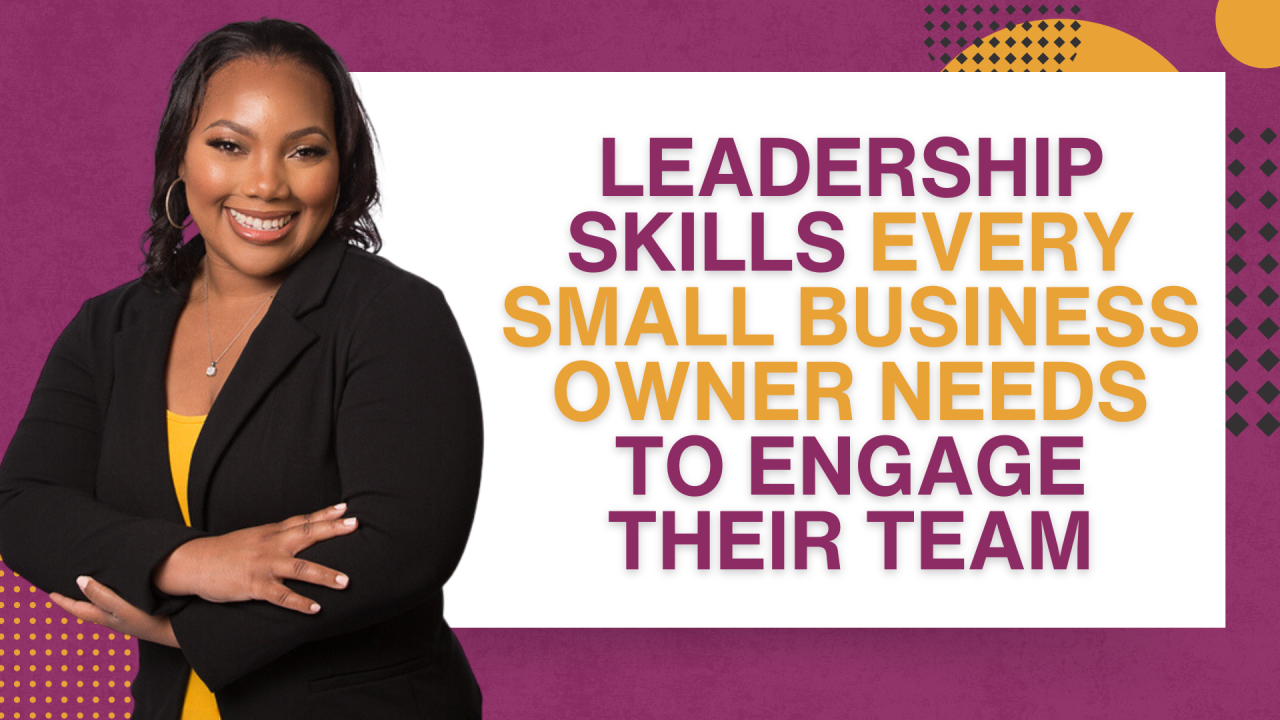
Being a small business owner means wearing many hats, but one of the most critical is that of an effective leader. Whether you have a formal HR department or not, your leadership decisions directly influence your team’s experience, development, and long-term commitment.
Your approach to leading, hiring, communicating, coaching, and recognizing is your HR strategy. And when done well, it becomes a major driver of employee engagement and business performance.
In this article, we’ll walk through the core leadership skills every small business owner needs to not only engage their team but also build the foundation for a strong, people-first HR function that keeps your business growing from the inside out.
Why Leadership and HR Go Hand-in-Hand in Small Businesses
In large organizations, leadership and HR may operate in separate departments or divisions. But in small businesses, they’re often the same. When you lead your team, you’re also shaping:
- Your hiring and retention strategy
- Your feedback and performance management approach
- Your culture, values, and communication norms
- Your risk management when it comes to workplace issues
Strong leadership is proactive HR. And engagement doesn’t happen by accident; it’s built through intentional actions from the top down.
1. Emotional Intelligence (EQ)
Great leaders lead people, not just tasks. Emotional intelligence, the ability to understand and manage your own emotions while recognizing and influencing the emotions of others, is critical to connecting with your team on a human level.
Employees want to feel heard, understood, and supported. That doesn’t mean you need to solve every problem, but it does mean responding with empathy, staying calm under pressure, and adapting your communication style to the needs of the moment.
How to build it:
- Practice active listening in meetings and one-on-ones
- Ask your team how they’re doing, and really listen to the answer.
- Reflect on your emotional responses before reacting.
2. Clear and Consistent Communication
In small teams, miscommunication spreads fast. Without clear direction, employees can feel confused, frustrated, or disconnected from the mission.
As the leader, it’s your responsibility to establish the tone for how and when communication occurs. Clarity builds trust, and trust is the foundation of engagement.
What it looks like:
- Clearly defined goals and priorities
- Transparent updates on changes or decisions
- Regular check-ins with space for feedback
- Setting expectations and following through
3. Vision and Purpose
People want to be part of something bigger than just a to-do list. When employees understand the “why” behind their work, they feel more invested in the outcome.
It’s your job to articulate the vision of where your business is going and connect every role back to that purpose. This is especially important in small businesses, where every team member plays a vital role.
What you can do:
- Share the company’s long-term goals in team meetings.
- Celebrate wins that align with your mission.
- Reinforce how each person’s work contributes to the bigger picture.
4. Coaching and Feedback
Great leaders don’t just manage performance; they develop people. Engaged employees want to learn and grow. That means they need feedback, encouragement, and opportunities to stretch.
In a small business, you have a unique opportunity to coach in real-time. Use it.
How to lead like a coach:
- Provide regular, specific feedback—not just during annual reviews.
- Ask questions instead of giving all the answers.
- Create space for employees to bring their ideas and take initiative.
5. Flexibility and Adaptability
If small business ownership has taught you anything, it’s that change is constant. Being able to pivot, adapt, and lead through uncertainty is essential, not just for survival but also for maintaining team engagement amid shifting priorities.
But adaptability also means being open to how your team works. Hybrid schedules, flexible hours, and new tools, when implemented with trust and structure, can all increase morale.
How to lead with flexibility:
- Embrace experimentation and learn from failure.
- Involve your team in problem-solving when plans shift.
- Be open to feedback on what’s working and what’s not.
6. Recognition and Appreciation
Engagement doesn’t always require grand gestures. Often, a simple thank-you, a shoutout in a team meeting, or a quick Slack message goes a long way.
Recognition fuels motivation. It shows your team that you see their effort and that their work matters.
Make it a habit to:
- Celebrate small wins and significant milestones alike.
- Recognize effort, not just outcomes.
- Personalize your praise to what each person values.
7. Decision-Making with Integrity
In small businesses, leadership decisions are often felt immediately. Whether you’re choosing to hire, let someone go, raise prices, or pivot strategy, how you make and communicate decisions sets the tone for your culture.
People want to work for leaders who are fair, transparent, and grounded in values—even when the decisions are tough.
How to lead with integrity:
- Explain the reasoning behind key decisions
- Own your mistakes
- Be consistent in how you treat team members.
Lead the Team You Want to Keep
As a small business owner, you might not think of yourself as an HR professional, but the reality is, you already are. Every conversation you have, every policy you create, and every leadership decision you make is shaping your HR strategy, whether it’s formalized or not.
When you lead with empathy, clarity, and fairness, you’re not just running a business; you’re creating a workplace where people want to stay and succeed.
If you’re ready to lead more intentionally and build a people-first business, fHRm can help. From leadership coaching and HR strategy to team engagement systems and documentation support, we partner with small business owners to make HR feel human and aligned with your leadership approach
